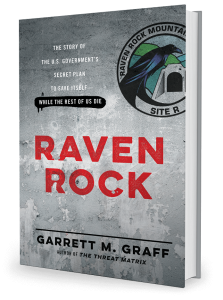Below is the text of my monthly “Editor’s Letter” in the new issue of Washingtonian.
—-
LBJ’s hand-wringing gave away his powerlessness. Robert Caro’s new biography, The Passage of Power, which covers just six years of Lyndon Johnson’s life, is more than anything else, Caro writes, “a story about what being without power can mean in a city in which power is the name of the game: in a city as cruel as Washington.”
The book, the author’s fourth volume about Johnson, begins in 1958 with LBJ as Senate majority leader—the “second most powerful man in the country”—and ends in 1964 after a Dallas gunshot has transformed him into the nation’s chief executive.
Yet in between those glory-filled bookends, Caro traces how the Kennedy White House—and particularly attorney general Robert Kennedy—slighted and snubbed the Vice President at every turn, mocking him as “Uncle Cornpone.” Johnson actually had nightmares about his powerlessness, of standing chained to his desk in the Old Executive Office Building. Newspapers ran joke headlines: WHATEVER HAPPENED TO LYNDON JOHNSON?
Powerlessness was LBJ’s worst fear; one of his early coworkers said he “couldn’t stand not being somebody—just could not stand it.”
Thus the image that stuck with me as I devoured the biography was of LBJ sitting in JFK’s Cabinet meeting, his “big hands . . . clasped together, the intertwined fingers working nervously, so hard that his knuckles were white with the effort he was making not to speak.”
Caro’s underlying theme isn’t new. The irrelevance of the vice-presidency is a running Washington joke. HBO’s hit series Veep has Julia Louis-Dreyfus playing an isolated Vice President. Every time she returns to the office, she asks her secretary, “Did the President call?” The answer’s always the same: “No.”
And yet in a city that, as Caro says, is as obsessed with influence as Washington, the lack of it can make for fascinating stories.
In this issue, we feature two stories of powerlessness, of how it destroys and sometimes empowers.
The first, by contributing editor Ariel Sabar, features a person familiar to anyone who commutes up and down DC’s Massachusetts Avenue past the Vatican Embassy. What compels John Wojnowski’s lonely vigil, standing outside the Apostolic Nunciature day after day, holding aloft his rotating series of signs accusing the Catholic Church of ignoring horrific acts? The answer, Sabar discovered, was more complex than anyone might have imagined. You’ll see how Wojnowski set about trying to reclaim a life he feels was stolen from him by an Italian priest.
This month’s second story of powerlessness is by another contributing editor, Cindy Rich, who profiled a young killer nearly a decade after he took the life of a fellow Anacostia schoolmate he barely knew. It’s a tale in which all too many of the characters seem without power—the mothers, the police officers, the ministers, not to mention the kids themselves.
Yet even at their darkest and most powerless moments, people dream. As a schoolchild in Texas, poor beyond today’s imaginings, LBJ was teased by classmates about his ambition to become President. “I won’t need your votes,” he told them stubbornly and proudly.
Such hopes aren’t pointless. John Wojnowski, for his part, has found a measure of peace and power in his own witnessing and has provided hope to other victims. And in a way no one ever would have wished, Erik Postell’s fatal mistake gave him a path out of a life he didn’t want to lead.
In the end, both Wojnowski and Postell have spent years wondering how their lives today would be different but for a moment’s twist of fate. That’s a feeling familiar to the LBJ whom Caro chronicles, a man transformed by an assassin’s bullet from a hand-wringing mute into the thunderous powerhouse who enacted landmark civil-rights legislation and launched the Great Society.
It’s somewhat poetic, perhaps, that Wojnowski’s vigil takes place across the street from the US Naval Observatory, home to the nation’s traditionally powerless second-in-command—an office that can be transformed in a heartbeat and of which Vice President John Adams once said, “In this I am nothing, but I may be everything.”



Recent Comments